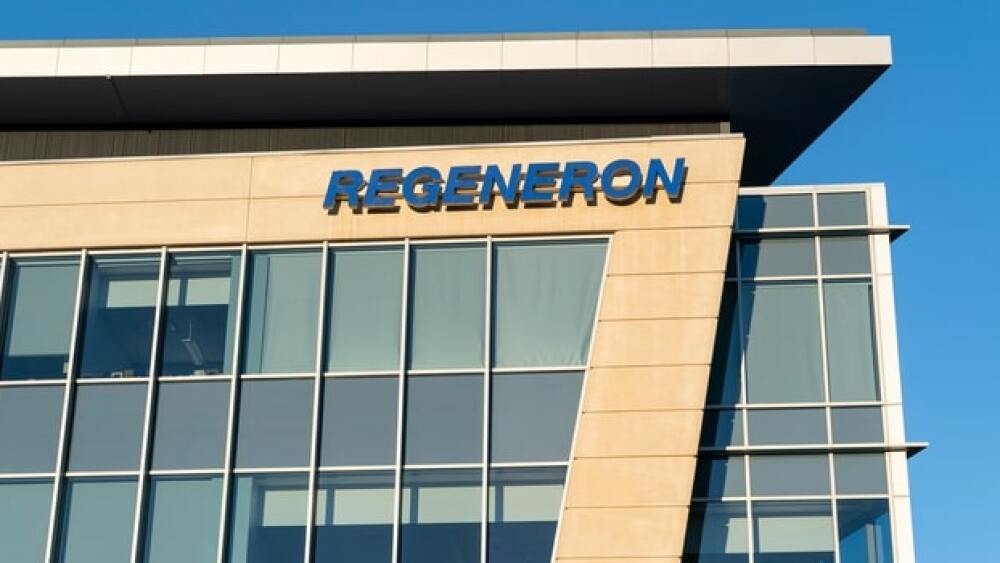Regeneron announced it has acquired Checkmate Pharmaceuticals and that it has entered a clinical trial collaboration with SpringWorks Therapeutics to treat multiple myeloma.
Courtesy of Lev Radin/Getty Images
Regeneron is in the midst of a busy Tuesday with twin announcements that it is acquiring Checkmate Pharmaceuticals and that it has entered a clinical trial collaboration with SpringWorks Therapeutics to evaluate REGN5458 in multiple myeloma in combination with nirogacestat.
Regeneron announced its intention to acquire Checkmate Pharmaceuticals and its investigational immune activator, vidutolimod, for approximately $250 million. The acquisition of the clinical-stage biopharmaceutical company, which focuses on technologies that utilize the immune system to attack cancer, primes Regeneron to broaden its portfolio of diverse and combinable immuno-oncology candidates.
Vidutolimod is an advanced generation CpG-A oligodeoxynucleotide Toll-like receptor 9 agonist that is delivered to the body in a virus-like particle. The therapeutic works by activating the immune system in a two-pronged approach. First, the immune system is stimulated by the virus-like particle that the therapeutic is delivered in, which creates antibodies. The antibodies help to further spread the drug throughout the immune system which brings the drug to Toll-like receptor 9, which stimulates the receptor to release significantly higher amounts of immune cell activators which produce an anti-tumor immune cell response.
The drug is currently being investigated in combination with other agents for melanoma, non-melanoma skin cancers and head and neck cancer. It is intended to be injected directly into a tumor target, although in Phase Ib studies it also caused the shrinkage of other tumors that were not targeted.
“As we continue to advance and expand our research efforts in immuno-oncology, the acquisition of Checkmate will add a promising new modality to Regeneron’s toolkit of potential approaches for difficult-to-treat cancers,” said Leonard S. Schleifer, M.D., Ph.D., president and CEO of Regeneron, in a press release. “The unique combination of a differentiated Toll-like receptor 9 with other antibody-based oncology agents may result in increased clinical benefit and provide new treatment options for patients in need. We look forward to welcoming the Checkmate team and their complementary scientific acumen to the Regeneron family.”
Regeneron additionally announced that it is collaborating with SpringWorks Therapeutics in a clinical trial to evaluate REGEN5458 in combination with nirogacestat, a therapeutic born by SpringWorks. Per the collaboration agreement, Regeneron will be responsible for the clinical development and assume all costs associated with the study other than expenses related to nirogacestat.
Nirogacestat is an investigational, oral, selective small-molecule gamma-secretase inhibitor that is in Phase III clinical development for desmoid tumors, non-cancerous growths that occur in connective tissue. The therapeutic works by dysregulating transmembrane proteins which can then play a role in activating pathways that contribute to tumor growth. Beyond its use in desmoid tumors, SpringWorks has noted in preclinical models that nirogacestat has been shown to increase levels of membrane-bound B-cell maturation antigens (BCMAs) which are highly expressed on multiple myeloma cells which could enhance the activity of BCMA-targeted therapies.
Regeneron swooped in on this preclinical finding, hoping to proffer a combinatorial therapy of nirogacestat and its investigational bispecific antibody targeting BCMA and CD3, REGN5458. REGN5458 bridges together immune cells that activate T-cells to kill cancer cells in patients. In Phase I clinical trial results, REGN5458 showed a 75% response rate in highest dose levels studied with 83% of patients dosed demonstrating a very good partial response. By combining REGN5458 with nirogacestat, patients with multiple myeloma could potentially have a stronger and more efficacious therapy for the disease.
Featured Jobs on BioSpace





